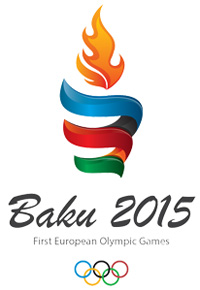TOKYO 2020 - RHYTHMIC GYMNASTICS
 |
The RHYTHMIC GYMNASTICS competitions at the 32nd Summer Olympics in Tokyo on the last Olympic weekend (August 6th - 8th) conclude the three gymnastics disciplines.
* With the first victory of an Israeli gymnast, Linoy ASHRAM, the Russian Olympic gold series, which has been uninterrupted since 2000, was broken, now!.
With a all-around score of 107.800 points the 22 years old gymnast won gold in front of the highly favorite and 5-time current world champion Alina AVERINA (ROC), who after a loss of ribbon in the last exercise was unable to make up the deficit before the last exercise and surprisingly "content" with -0.15 points silver had to. Just as surprisingly, Belarusian Alina HARNASKO won bronze, as twin sister Arina Averina fell back to fourth after a complete ribbon change in her last exercise ...
* The Olympic gold thread also broke in the Olympic competition of gymnastics groups in Tokyo: With two flawless exercises, the group from BULGARIA won the gold medal for the first time again since 2000. Silver went to the Russian ROC group, -1.4 points behind. Overjoyed girls from ITALY won bronze.
♦♦ P R E V I E W

Can anyone stop ROC ....?
 The nation has been at the forefront of Olympic Rhythmic Gymnastics for 20 years, not missing a title in Individual or Group between Sydney 2000 and Rio 2016. In Tokyo, ROC representatives are three-time World All-Around champion Dina Averina and her identical twin sister Arina Averina, the World All-Around silver medallist in 2017 and 2019. On the Olympic carpet, the twins will duel each other - and a diverse field that includes three-time World All-Around medallist Linoy Ashram (ISR) for individual honours.
The nation has been at the forefront of Olympic Rhythmic Gymnastics for 20 years, not missing a title in Individual or Group between Sydney 2000 and Rio 2016. In Tokyo, ROC representatives are three-time World All-Around champion Dina Averina and her identical twin sister Arina Averina, the World All-Around silver medallist in 2017 and 2019. On the Olympic carpet, the twins will duel each other - and a diverse field that includes three-time World All-Around medallist Linoy Ashram (ISR) for individual honours.
* The five-member ROC Group, led by Rio 2016 Olympic gold medallists Anastasia Bliznyuk, Anastasiia Maksimova and Anastasiia Tatareva, will have to hold off strong challenges from Bulgaria, Italy, and host Japan in order to take a sixth consecutive gold.
* By the way:
The youngest participant is Russia's Viktoria Onoprienko at 17 years old, the oldest gymnast is 30 years old and comes from Mexico and is called Rut Castillo Galindo.
* PARTICIPANT : → For the individual all-around competition, 26 gymnasts from 18 nations qualified for participation in the Olympics:
According to FIG mode, 10 nations start with 2 gymnasts each (ROC, USA, ISR, BUL, ITA, UKR, JPN, BLR);
Another 10 nations are represented by 1 gymnast each (AUS, AZE, CPV, EGY, GEO, HUN, KAZ, MEX, SLO, UZB). → In the group all-around competition, 14 nations are represented by 1 national group each (AUS, AZE, BLR, BRA, BUL, CHN, EGY, ISR, ITA, JPN, ROC, UKR, USA, UZB.
(For the first time, the German-speaking area is no longer a member of the "Olympic Family" of this discipline. Neither the German gymnastics Federation DTB, as the quantitatively "largest" gymnastics association in the world, nor Austria or Switzerland were able to qualify with their representatives. In Switzerland, rhythmic gymnastics has recently been taken out of the national funding of an Olympic discipline ...!)
♦♦ INDIVIDUAL ALL-AROUND (Friday, August 06)
♦ Qualification:
Anything other than this order of the favorite trio would be a surprise: After four handheld devices in the qualification, the Russian pair of twins Dina Averina (106,300) leads in front of sister Arina (106,175) in front of Linoy Ashram from Israel (103,100).
Whether the Belarusian duo of pursuers Alina Harnasko and Anastasia Salos, just under 4 points behind, can still hope for bronze is not very likely, unless the nerves play an incalculable role in the Olympic final ...
In the other places 6 - 10, the following gymnasts qualified for the 10'er finals on Saturday:
6. Milena Baldassari (ITA); 7. Nicol Zelikman (ISR); 8. Boryana Kaleyn (BUL); 9. Viktoria Onoprienko (UKR); 10 Khrystyna Pohranychna (UKR)
► AA Results, Qualification
+++++++++++++++++++++++++++++++++++++.
♦ The INDIVIDUAL ALL-AROUND F I N A L:
 After the actual top favorite Dina AWERINA made a few (unusual) tiny things with the first three hand tools (hoop, ball, clubs), and the difficulty of her preliminary exercise with the clubs was not fully recognized, Linoy ASHRAM, (<photo, left) her fiercest competitor from Israel already had a lead of +0.850 points before the last rotation, with the ribbon. Only with a flawless practice and a sensational score of 24,200 points could Dina pass the Linoy ...!
After the actual top favorite Dina AWERINA made a few (unusual) tiny things with the first three hand tools (hoop, ball, clubs), and the difficulty of her preliminary exercise with the clubs was not fully recognized, Linoy ASHRAM, (<photo, left) her fiercest competitor from Israel already had a lead of +0.850 points before the last rotation, with the ribbon. Only with a flawless practice and a sensational score of 24,200 points could Dina pass the Linoy ...!
The exceptional Russian gymnast and 13-time world champion actually packed everything she had available in terms of difficulties:
she increased her already high difficulty level of 14.600 (in preliminaries) by another 0.2 points in the final - but it was Ashram who had the highest difficulty (D = 15.0) already submitted. The Execution note, had to decide, and Awerina is known as a perfectionist ... everything went very well, she conjured up flawless ribbon drawings in the quiet but humid air of the Olympic competition hall ... but after two thirds of her lecture it happened ... Loss of tape (!) ... not as dramatic as that of her twin sister Alina Awerina, who even needed a replacement ribbon just before (- and who was fourth without a medal), but despite the better E-grade than Linoy Ashram of almost 1 point, 
Dina AVERINA came close to the leader, but after 21 years the Russian Olympic gold series broke off by a touch of -0.15 points: The new Olympic champion comes from Israel, is 22 years old and is called Linoy ASHRAM.
And the bronze medalist will be the overjoyed Alina HARNASKO, who wins a third Olympic medal for Belarus, continuing the tradition of Julia Raschkina (silver in Sydney 2000) and Ljubov Cherkaschina (bronze in London 2012).
* RESULTS
 ASHRAM, Linoy (ISR) - 107,800
ASHRAM, Linoy (ISR) - 107,800
 AVERINA, Dina (ROC) - 107,650
AVERINA, Dina (ROC) - 107,650
 HARNASKO, Alina (BLR) - 102,700
HARNASKO, Alina (BLR) - 102,700
4. AVERINA, Arina (ROC) - 102,100
5. KALEYN, Boryana (BUL) - 100,625
6. BALDASSARRI, Milena (ITA) - 90,625
7. ZELIKMAN, Nicol (ISR) - 95,600
8. SALOS, Anastasia (BLR) - 95,175
9. POHRANYCHNA, Khrystyna (UKR) - 95,100
10. ONOPRIENKO, Viktoria (UKR) - 93,360
► Detailed Results
.
♦♦ G R O U P - ALL-AROUND (Saturday, August 07)
♦ Q u a l i f i c a t i o n :
Saturday is also the first day of Rhythmic Gymnastics Group competition, where 14 groups from five continents will compete for places in Sunday’s final. Groups will perform two routines, one with 5 Balls and another with 3 Hoops and 2 Pairs of Clubs. The top eight advance.
ROC has dominated the carpet in Group Rhythmic for the past 20 years and taken All-Around gold at the past three World Championships. In Tokyo they can expect strong challenges from 2016 Olympic bronze medallists Bulgaria, as well as Italy and host Japan, which won a historic title with the 5 Balls at the 2019 World Championships. Any medal for ROC in Group competition would make Anastasia Bliznyuk the only Rhythmic gymnast to have medalled at three Olympic Games.
* Saturday: → ... from 3.15 - .00 p.m. local time on Uhr 6 p.m.
.Both with their 5-ball exercise and with the combination exercise (clubs / hoops), the BULGARIA group achieved the highest values in the preliminary fight and leads the field of 14 nations with 91.800 points. Russian ROC team came in behind with 89,050 points.
ITALY, fourth at Rio 2016, was third in qualification in Tokyo with a group that includes two 2016 veterans in Martina Centofanti and Alessia Maurelli. The “Farfalle,” as they are nicknamed, stood nearly two points behind ROC but 2.5 points ahead of Israel, the fourth strongest qualifier.
Also making the cut for Sunday’s medal round were China, Ukraine, Japan, and Belarus, whose gymnasts rallied after losing an apparatus late in their first routine, moving from twelfth to eighth to grab the last place for the final.
Uzbekistan, Azerbaijan, the USA, Brazil, Egypt, and first-time Olympic qualifiers Australia did not advance.
► RESULTS, Groups, Qualification
.
♦ GROUPS FINAL (Sunday, August 08)
BULGARIA won its first Olympic title in Rhythmic Gymnastics as the Tokyo 2020 Games drew to a close Sunday, dislodging reigning champions ROC from the top step of the podium for the first time since 2000.
* R E S U L T S
 BULGARIA - 47,550 + 44,550 = 92,100
BULGARIA - 47,550 + 44,550 = 92,100
 R O C - 46,200 + 44,500 = 90,700
R O C - 46,200 + 44,500 = 90,700
 ITALY - 44,850 + 42,850 = 87,700
ITALY - 44,850 + 42,850 = 87,700
4. CHINA - 42,250 + 42,400 = 84,550
5. BELARUS - 45,750 + 38,300 = 84,050
6. ISRAEL - 44,100 + 39,750 = 83,850
7. UKRAINE - 40,350 + 37,250 = 77,600
8. JAPAN - 42,750 + 29,750 = 72,500
► Detaillierte Resultate
Self-assured performances from Simona Dyankova, Stefani Kiryakova, Madlen Radukanova, Laura Traets and Erika Zafirova with the 5 Balls and then the 3 Hoops/2 Pairs of Clubs gave Bulgaria a total of 92.100 points, setting a standard that no other team was able to match.
* Bulgaria opens a new chapter in Rhythmic Gymnastics history
The quintet began their day with 47.550 points for a flawless exercise with the Balls, adding 44.550 with the Hoops and Clubs half an hour later. Both scores were the highest of the day, providing a golden compensation for a team heralded for its elegance and theatricality. Placing first in Saturday’s qualification round bolstered the team’s confidence heading into the final, explained Dyankova, the group leader. “It gave us the power for today, and that's why we won the title,” she said. "We tried to do the same thing we did in training, so it helped us to be on top." "It means everything. We put so much into these five years, so much work. We always believed we would be here, but it's still so unreal,” Kiryakova added. Gold is Bulgaria’s fourth Olympic Group medal in Rhythmic Gymnastics, following silver in 1996 and bronzes in 2004 and 2016. It joins ROC and Spain as the only nations to have won gold in Group.
* Bliznyuk becomes most decorated Rhythmic gymnast as ROC earns silver
The pressure of living up to past successes and holding off the Bulgarian advance proved too heavy a burden for ROC’s Anastasia Bliznyuk, Anastasiia Tatareva, Anastasiia Maksimova, Angelina Shkatova and Alisa Tishchenko, who finished with 90.700 points and silver after recording the second best scores for both exercises. Group silver, coming after five consecutive Olympic titles, was visibly bitter for ROC, a nation that has grown accustomed to the taste of gold. This colour medal is a novelty: since Rhythmic Group Gymnastics became an Olympic discipline 25 years ago, the team has won bronze once, and only gold thereafter. “We did our best,” Maksimova said. “We competed at our maximum and we were fighting for our country, we were fighting for our individual gymnasts, we were fighting for our team, and we were fighting for our coaches." The result gives Bliznyuk (ROC) her third Olympic medal after Group golds in 2012 and 2016, setting her apart as the only Rhythmic gymnast to have achieved the trifecta. With her, 2016 Olympians Tatareva and Maksimenko earned their second pieces of Olympic hardware, bringing the total number of Rhythmic gymnasts with multiple medals from the Games to seven, all of them born in Russia.
* Italian ‘butterflies’ float to bronze
Left off the podium in Rio five years ago, Italy was delighted with bronze earned by returning Olympians Martina Centofanti and Alessia Maurelli with Martina Santandrea, Daniela Mogurean, and Agnese Duranti. The polished “Farfalle” remained consistent during the final to alight on the podium after Belarus, in bronze medal position at the halfway point, committed errors in its second routine. The medal is Italy’s third medal at the Games, following silver in 2004 and bronze in 2012. “It’s like a dream,” Maurelli enthused. “We hope that all the people that follow the competition are happy like we are.” The People’s Republic of China, Belarus, Israel, Ukraine, and Japan rounded out the final.


 *... back to
*... back to













